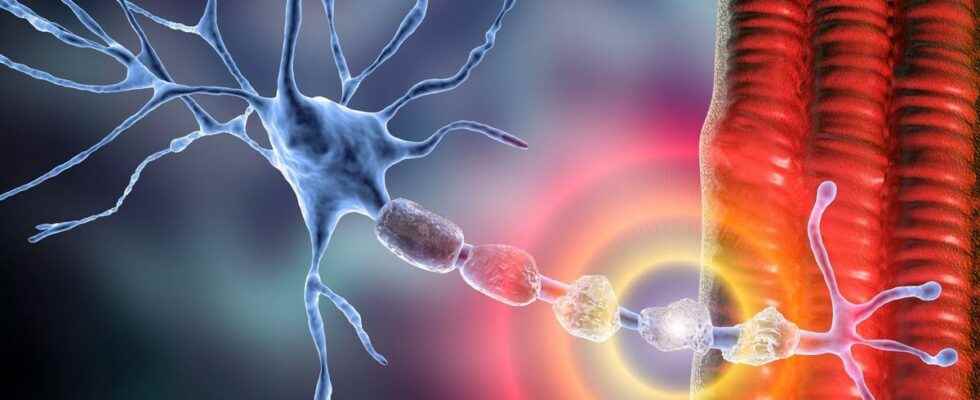Published ,
Reading 2 mins.
Researchers conducted a small clinical trial and succeeded in slowing the progression of multiple sclerosis, thanks to immune cells targeting the Epstein-Barr virus.
Multiple sclerosis and Epstein-Barr virus
According to the National Institute of Health and Medical Research (Inserm), the infectious track is hypothetical concerning multiple sclerosis. However, on January 13, the study conducted by the team of Doctor Bjornevik, from Harvard University, revealed the strong presence of a pathogenic agent involved in multiple sclerosis, it is the virus of ‘Epstein-Barr. This virus is very common, which until then made its involvement in this disease quite difficult to prove from a scientific point of view.
In this study published in the journal Science, experts have confirmed that the Epstein-Barr virus may be the cause of multiple sclerosis. Professor of epidemiology at the Harvard School of Public Health Alberto Ascherio and co-author of this study then declared that it was “the first study providing convincing evidence of causation […] This is an important step, as it suggests that most cases of multiple sclerosis could be prevented by stopping Epstein-Barr virus infection.“. And to add that “targeting this virus could lead to the discovery of a cure“.
Transplanted specific immune cells
This is, in fact, what seems to be revealed by a small study conducted by Ludvig M.Solid, from the University of Oslo, Norway. The researcher and his team have provided new evidence which has shown that the Epstein-Barr virus could play a role in the onset of multiple sclerosis. Scientists wanted to know if this pathogen was more of a “engine” Where “trigger” in order to develop a concrete therapy. If the virus is a motor, then it drives innate antiviral immunity, which relies on recognizing the molecular signatures of the pathogen. If, on the contrary, the Epstein-Barr virus is a trigger, then it leads to self-sustaining autoimmunity, that is to say that the defenses attack the cells of the organism.
Thanks to their test, the researchers realized that the immune cells fought against the Epstein-Barr virus and helped to stop the progression of multiple sclerosis. For these observations, immune cell transplants targeting this pathogen have been performed in patients with the autoimmune disease. The specialists then analyzed the brain images of the volunteers.
These results look quite promising, even though the study is only an early-stage one. Other tests and trials must be carried out in order to bring a little more elements to this study.
